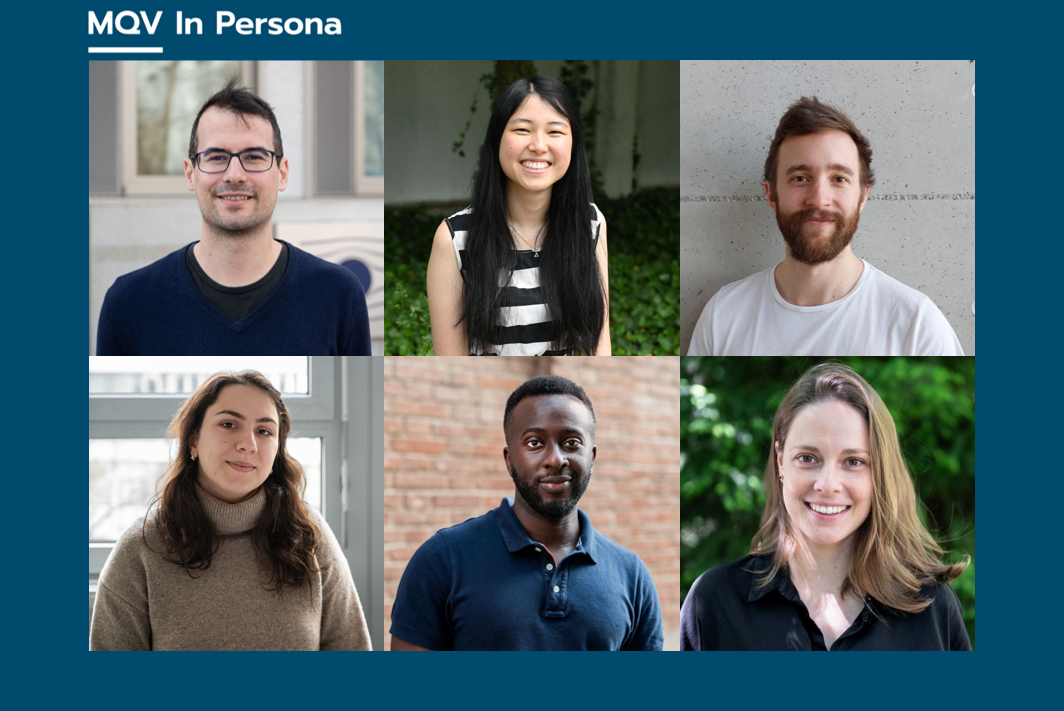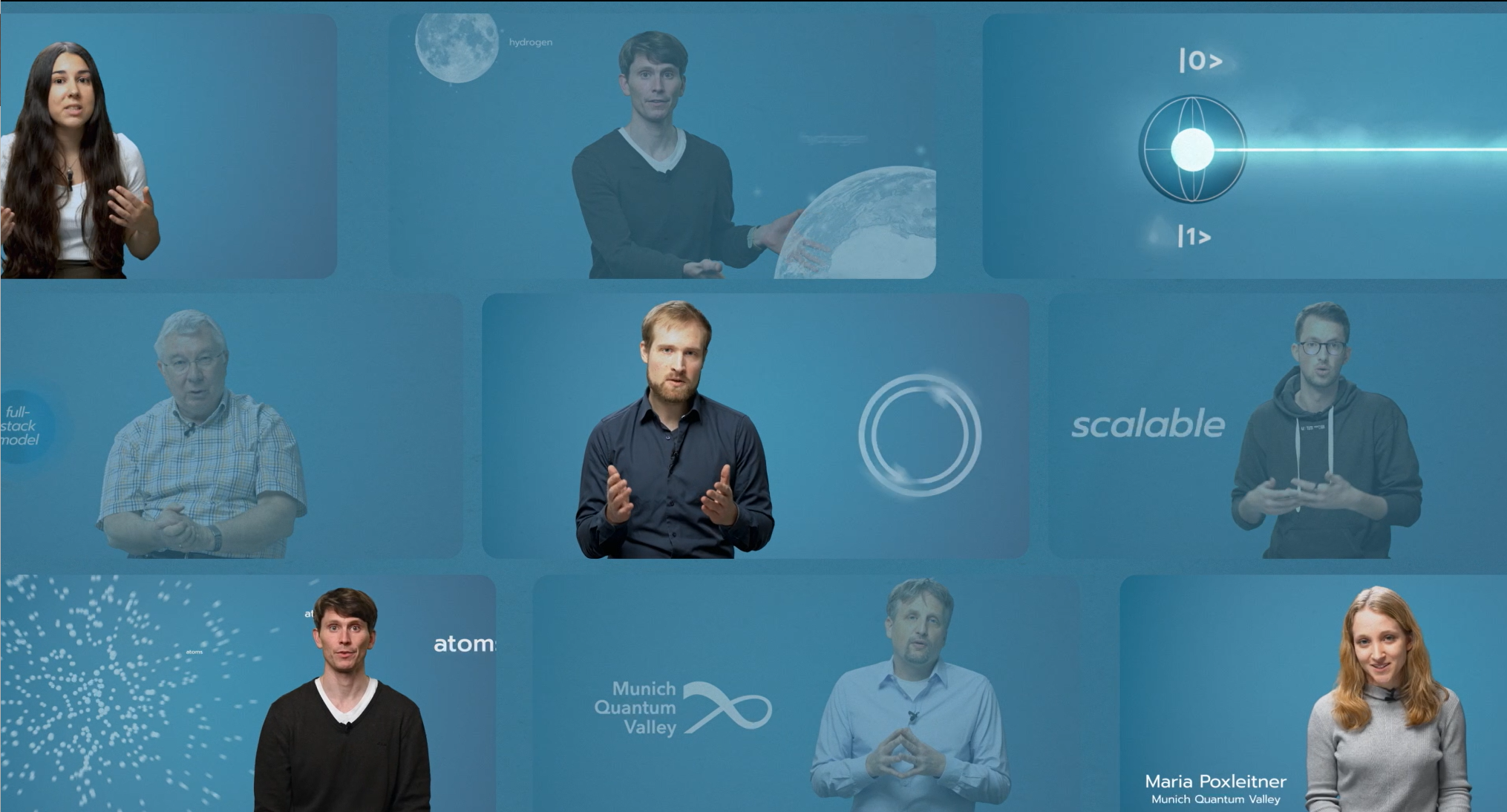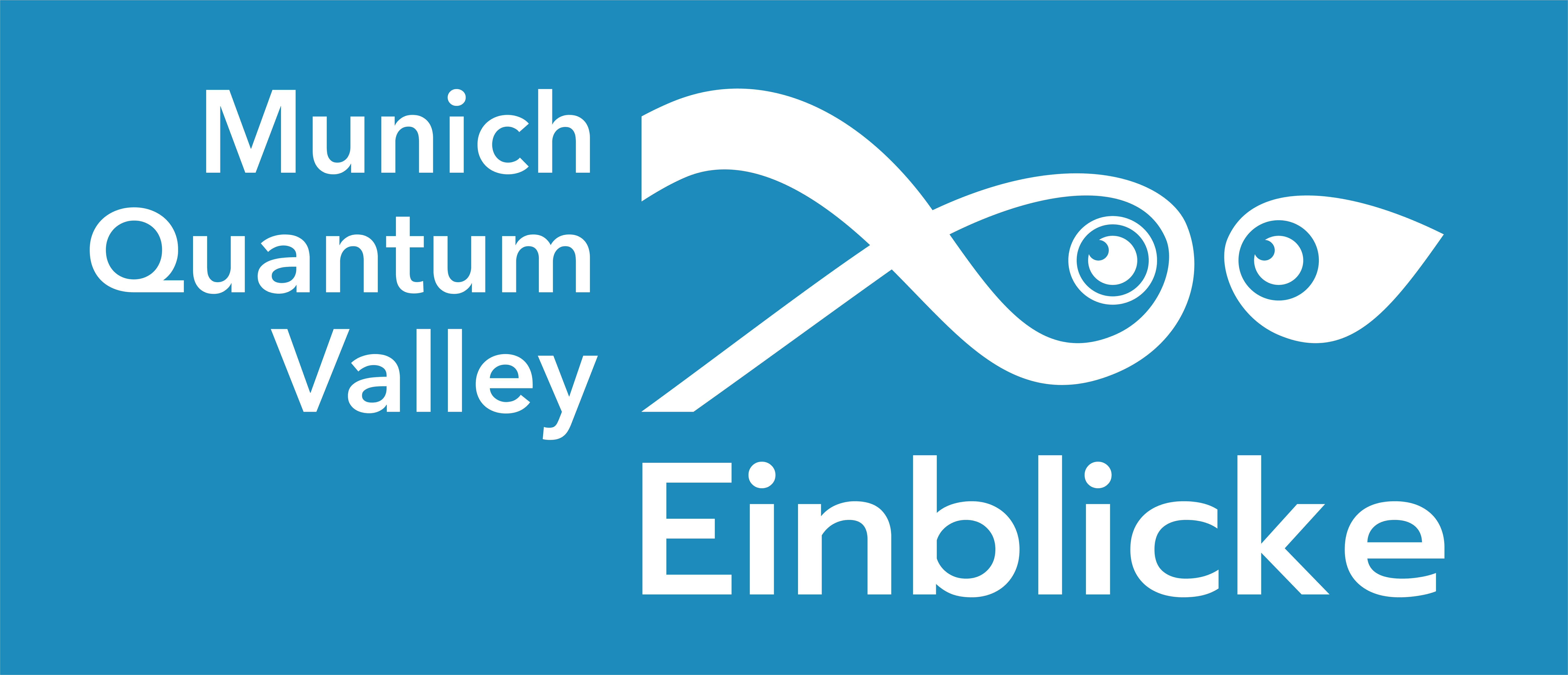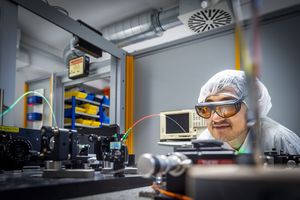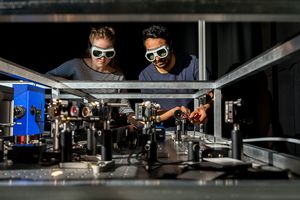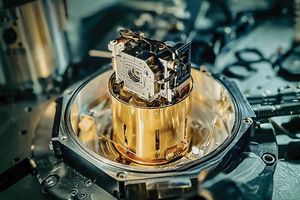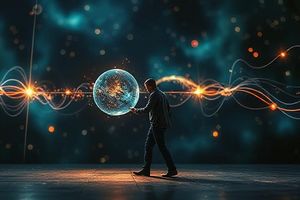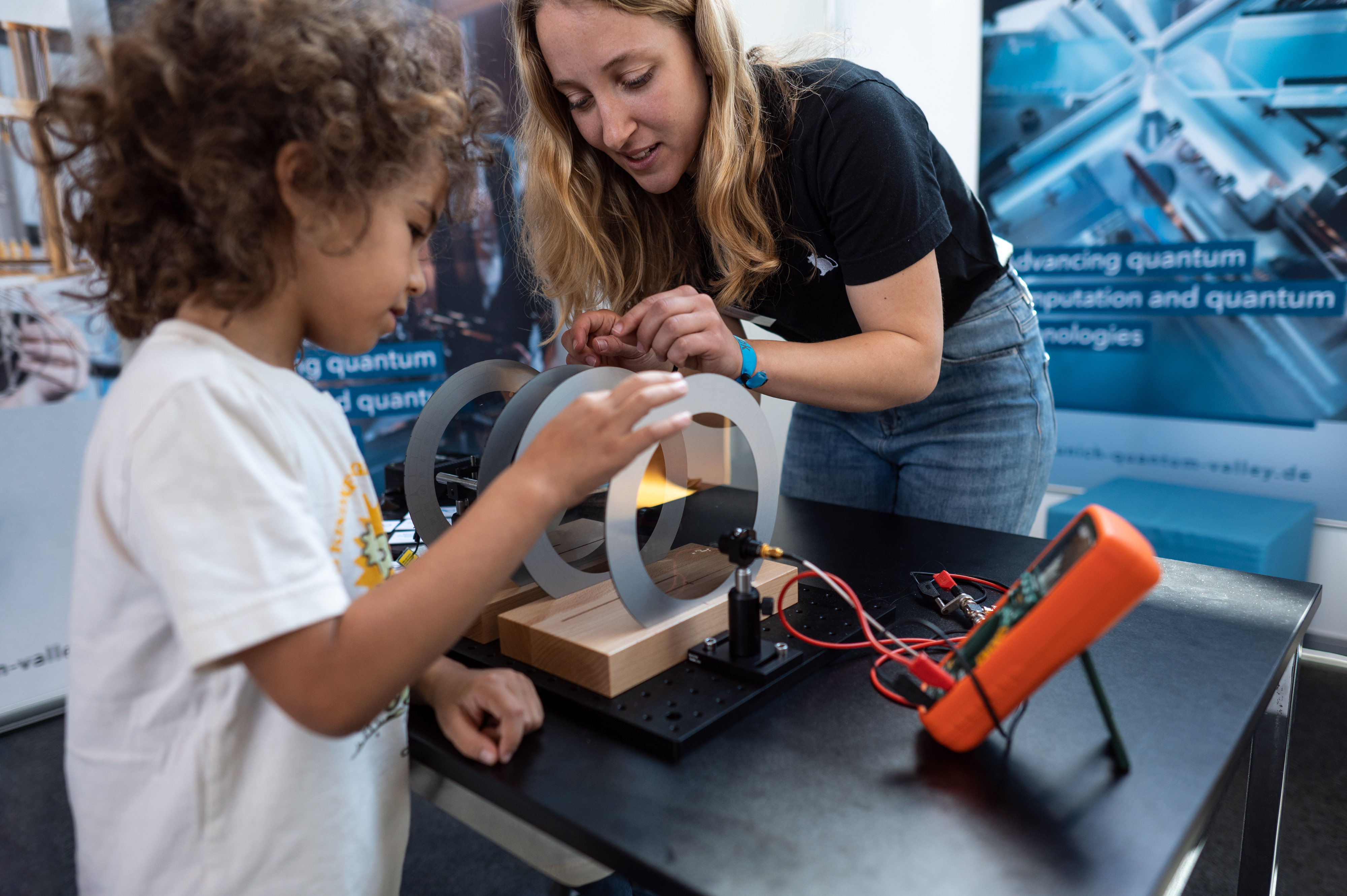
Public engagement
Although no cell phone would work without the findings of quantum physics, quantum physics and quantum technologies are generally unknown to the general public, or at best known as mysterious and completely incomprehensible.
With targeted public engagement measures, the communication, education and public engagement team of Munich Quantum Valley helps to create a basic understanding of quantum technologies and their benefits for society among the general public.
This is achieved by participating in and organizing dialog formats such as exhibitions, events, and public lectures, as well as participating in trade fairs and professional events. Examples include the participation of Munich Quantum Valley in "FORSCHA" (Munich), the "Festival of the Future" at the Deutsches Museum (Munich), re:publica (Berlin) or the "World of Quantum" (Munich).
The aim is to transport the fascination that quantum technologies hold and to moderate the discussion of expectations, hopes and possible fears in a dialog with the public.
MQV In Persona
The portrait series "MQV In Persona" gives personal insights into the Bavarian quantum ecosystem. At MQV and its associated institutes, many young scientists are working together to develop competitive quantum computers in Bavaria and to advance quantum technologies in their entire range and their research activities are as diverse as the researchers themselves. Get to know them here.
Quick Quantum Questions
The "Quick Quantum Questions" video series features quantum experts from the Munich Quantum Valley ecosystem, covering the basics like superposition and entanglement, explaining different hardware platforms and giving a deeper insight into the quantum landscape we are building together in MQV. Watch the videos on YouTube.
MQV-Einblicke
In the event series “MQV-Einblicke” (in German language), the MQV member institutes as well as start-ups and industry partners of MQV invite visitors to experience first-hand, with short lectures and guided tours, what it means to do quantum science and quantum-technology development today. Take a look at the upcoming events here.
Selected upcoming public events
MQV-Einblicke – "Hochpräzise Frequenzbestimmung und ultrastabile Laser: Optische Innovationen für die Quantenrevolution"
Menlo Systems GmbH
How can quantum transitions be precisely controlled and studied using lasers? Visit Menlo Systems on 26 March to learn how high-precision lasers are developed and what key role they play in building ion and neutral-atom quantum computers.
MQV Girls'Day 2026: Exploring the world of quantum materials
- 09:00 –
Center for Nanotechnology and Nanomaterials, Walter Schottky Institute
This year, Munich Quantum Valley is taking part in Girls'Day together with the Center for Nanotechnology and Nanomaterials of the Walter Schottky Institute. Girls are invited to find out about careers in science, learn how to produce the thinnest materials in the world, and discover the role of quantum physics in designing new materials with exciting properties for application.
MQV-Einblicke – "Quantenoptik trifft Mikroskopie"
Qlibri GmbH
How can light and matter be made to interact efficiently and precisely? Visit the start-up Qlibri on 28 April and learn more about Qlibri's approach to ultrasensitive microscopy methods and the development of components used in various quantum technologies.
Physik für Alle: Stolpersteine auf dem Weg zur Quantengravitation
Max Planck Institute of Quantum Optics, Herbert-Walther-Hörsaaal
What approaches exist for integrating gravity into the Standard Model of physics? On 10 July 2026, Moritz Dorband, an employee of the Munich Quantum Valley-supported PhotonLab, will explore this question in a popular science lecture at the Max Planck Institute of Quantum Optics.
